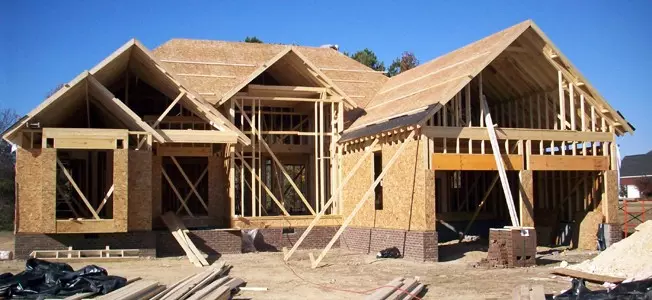
Your residential framing contractor is one of the most important people you’re going to see when it comes time to build or renovate a home. These individuals come in and provide you with the main structure of your residence, so you want to make sure it is the strongest it can be.
You can do a search for a residential framing contractor in your local area or you can check the internet to see what your options are. Regardless of where you look for your contractor, you should follow the same checklist of these 10 things you need to determine before you make your final choice.
1. Qualifications
Residential framing contractors frequently attend some sort of technical school to earn their skills and knowledge on building. Ask to see any of their qualifications or certifications in the industry. The really good residential contractors will also only hire trained crew members or at least take the time to train them on their own. Question the capabilities of everyone that’s going to have their hand in your project.
2. Experience
You want to give the newbie a try because everyone has to start somewhere. This isn’t the time to do that. You want to hire someone that has many years of experience in the industry to ensure you’re going to get a satisfactory job. If they have been doing it for several years and they are still in business, you can bet that they know what they are doing. Again, ask about the crew they are bringing along with them and how much experience they have. Chances are the team is going to be doing most of the labor while the boss or owner oversees everything is done correctly.
3. Licensing
Depending on where you live, your contractor should have specific required licensing. First, research what is necessary to have in your area, and then ask your candidates to prove they have it. If they don’t, they aren’t following the law. That’s a red flag, and you should keep looking.
4. Insurance
There is always the risk of something happening while the work is being done. You don’t want to be responsible for somebody’s hospital bill just because they were on your property when the accident occurred. Talk with your residential framing contractor about what kind of insurance they have. If they aren’t insured, move on to someone else.
5. Background References
You can explore online and talk with other people in your area about the contractor you are considering. There are usually references that can be seen on various websites or you can check with the Better Business Bureau to confirm there aren’t any complaints. Word-of-mouth is always a great way to determine whether or not somebody is going to provide you with the service you want, so don’t be afraid to ask around.
6. Pricing
Instead of just hiring the first residential contractor that looks good to you, you need to check around for how much does their services cost. Even if they have all the other qualifications you are looking for, if their prices are astronomically high, it is going to be worth your time to look around at what your other options are. Keep looking until you have three or four contractors offering you the same exact thing, or at least somewhere in the vicinity of one another before you make a final selection.
7. Contracts
You want to sign on contract with your residential framing contractor so that you can be confident both ends are going to hold up to their end of the agreement. Go over every single detail that you can think of from pricing and scheduling to payment plans and what the policy is if you aren’t satisfied with the final results. Don’t let your contractor start working until you have a contract set in place and both parties have agreed and signed to it. You don’t want to be left with half a completed design because your contractor decided to bail early.
8. Scheduling Expectations
Framing is a serious part of your home build, so you want to be guaranteed the job is done on time. Go over the schedule in detail to make sure that you and your residential contractor are on the same page.
9. Quality of Materials
Sometimes a contractor will offer unreasonably low rates that are extremely attractive on paper. That could be because they are cutting corners when it comes to their materials. You want to make certain they are using quality materials that are going to hold up for many years to come.
10. Final Approval
Confirm with your residential framing contractor that you’re going to get to do a final walk through and approval after the job is finished. If they aren’t willing to offer that, you might want to consider hiring someone else that will.
